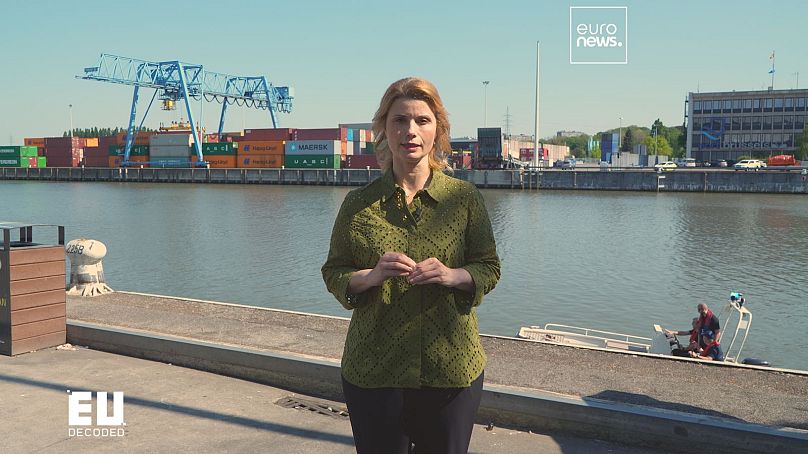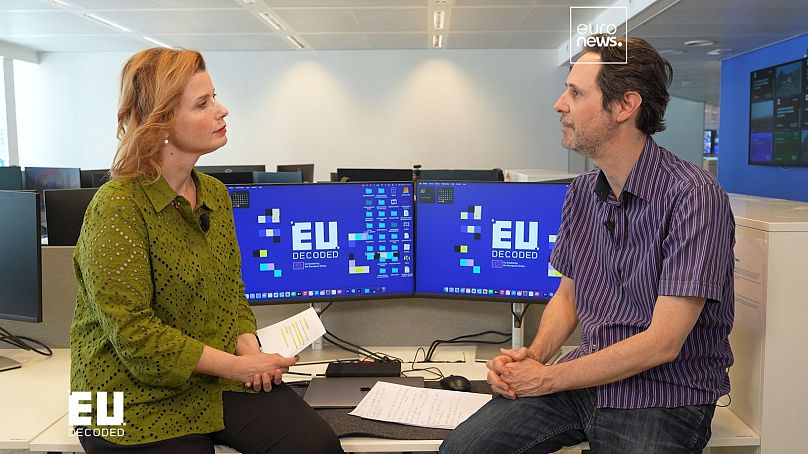Will Companies Take a Stand Against Microplastic Pollution?
Microplastics range in size from 5 mm to microscopic levels, and there is scientific evidence that they contaminate soil – which can harm agriculture – and that leakage into waterways and the sea leads to ingestion by animals, including fish, which in turn are consumed by humans.
Several scientific studies suggest that unintentionally ingesting microplastics may lead to health issues like decreased fertility and cancer. As a result, the general public is conscious of these threats and is calling for the implementation of more stringent regulations by the bloc.
"I was told that microplastics have the ability to infiltrate the cerebral cortex, which is a section of our brain. Once they get into our circulatory system, they significantly affect reproductive health," stated a citizen from Athens (Greece).
“I believe that the European Union could decide to use less plastic, both in industry and in our daily consumption,” said another resident of Brussels (Belgium).
The institutions have just reached an agreement on a new regulation that sets obligations for companies that store plastic pellets on their premises and for those that transport them.
"Large companies that move more than 1,500 tonnes per year will have to obtain certification from an independent third party. Small companies that move more than 1,500 tonnes per year will have to obtain a single certification. Small companies that move less than 1,000 tonnes and micro-enterprises will have to issue a self-declaration of conformity," said Gregoire Lory, who covers the issue for Euronews.
Why and how will non-EU operators comply?
Each year, the equivalent of up to 7,300 truckloads of plastic pellets are lost to the environment. The European Commission estimates that the new rules should reduce plastic pellet losses by up to 74%. To achieve this, the rules will also apply to non-EU operators.
"Organizations based outside the EU but operating within our territory must appoint an authorized representative to clarify their compliance with European standards to every relevant authority in the member states," stated César Luena, a key negotiator for the European Parliament.
Certain non-governmental organizations oppose the exemptions and postponements in implementation, especially criticizing the less stringent regulations for smaller enterprises.
"Small and medium-sized enterprises (SMEs) make up the overwhelming portion of the plastics supply chain, representing 98% in processing and 97% in transportation and storage," stated Gregoire Lory.
Maritime transport will be granted an extension to three years instead of two, like other sectors, for complying with these regulations, even though marine pollution remains quite severe. This decision comes under pressure from certain member states that heavily rely on maritime economic activities.
"Cyprus, Greece, Malta, and Croatia requested an extension of three years as they required additional time to adjust," the legislator affirmed.
Breaches of the updated regulations concerning the storing and transporting of plastic pellets might result in penalties amounting to a minimum of 3% of a company’s revenue within the European Union. In instances of severe pollution, governments have the authority to pursue criminal charges as well.
Watch the video here!
Journalist: Isabel Marques da Silva
Content creation: Pilar Montero López
Video production: Zacharia Vigneron
Graphism: Loredana Dumitru
Editorial coordination: Ana Lázaro Bosch and Jeremy Fleming-Jones


Post a Comment for "Will Companies Take a Stand Against Microplastic Pollution?"